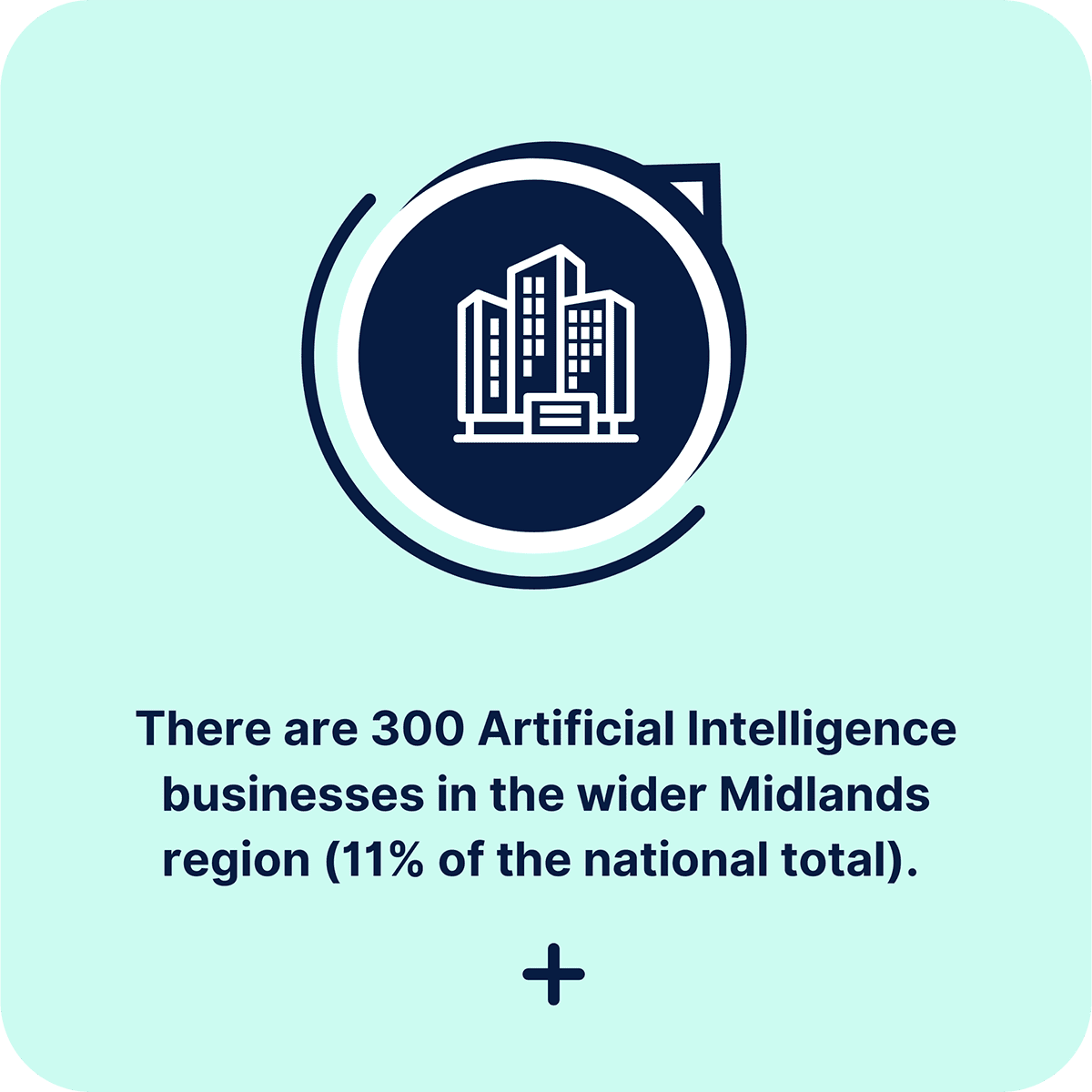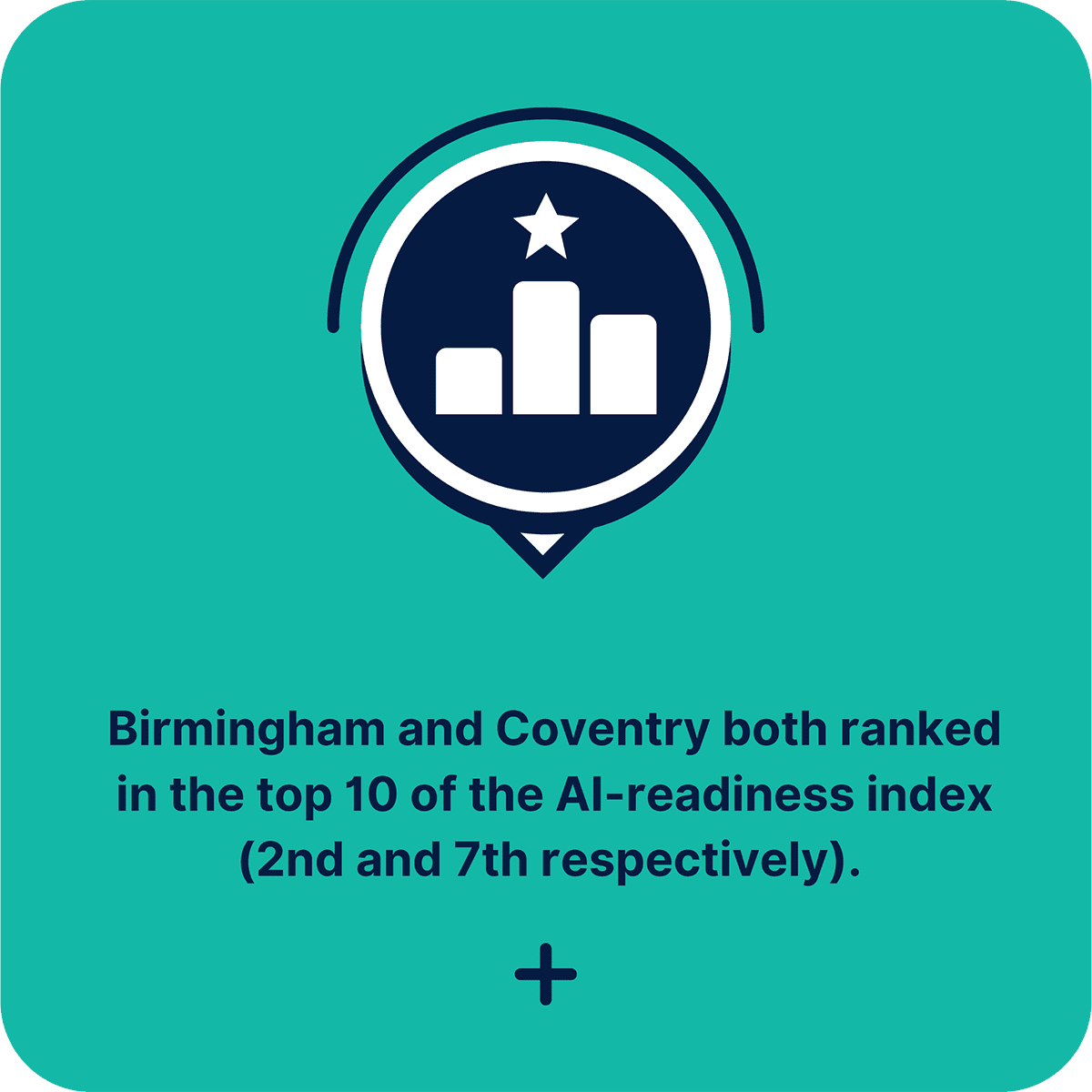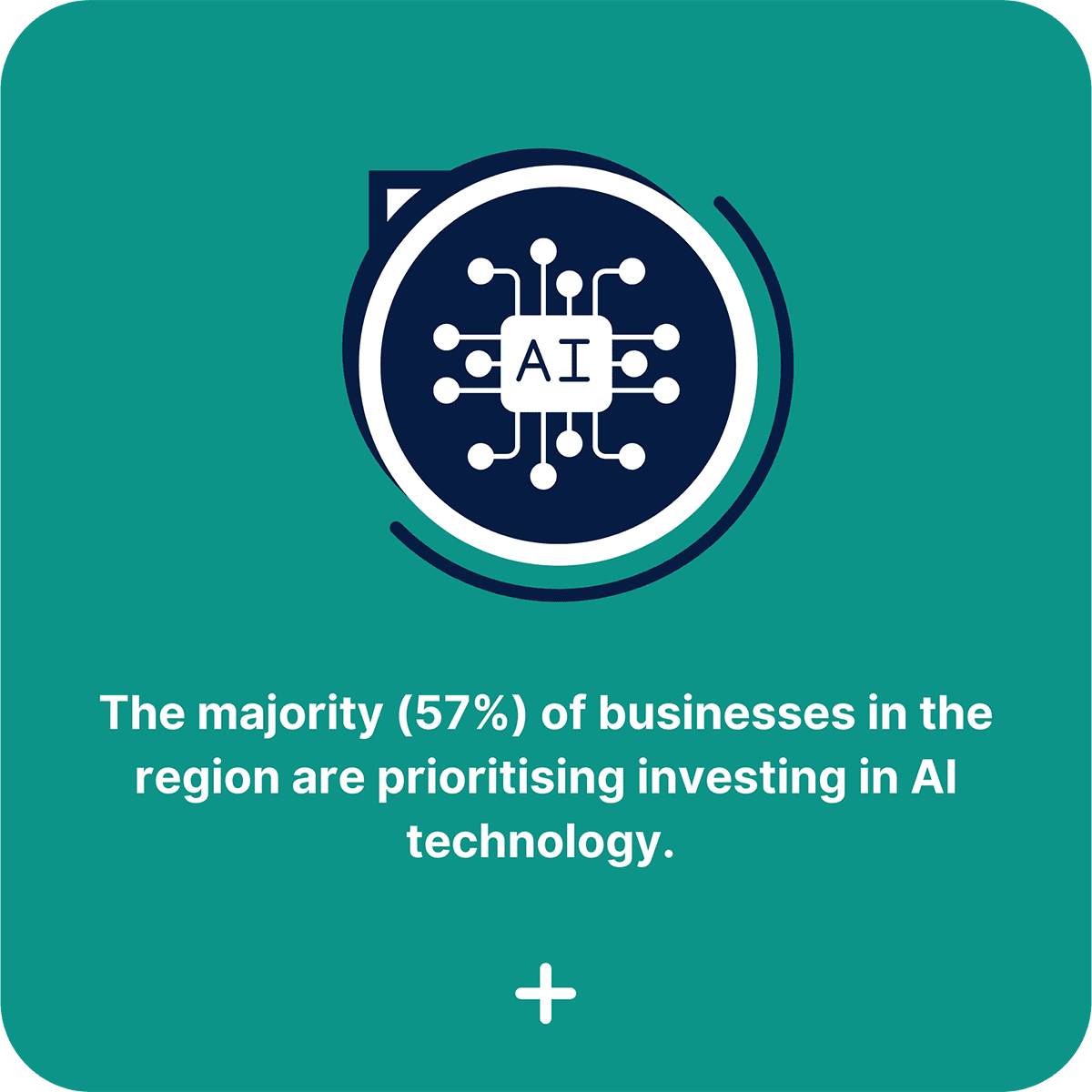Register for Free
Bookmark your favorite posts, get daily updates, and enjoy an ad-reduced experience.
Already have an account? Log in
Bookmark your favorite posts, get daily updates, and enjoy an ad-reduced experience.
Already have an account? Log in
The West Midlands boasts one of the most vibrant and fastest growing tech sectors in the UK, a fitting testament to our young and diverse population, numerous excellent higher education institutions and cultural heritage of powering innovation.
AI is driving a new industrial revolution in productivity and competitiveness, with impact at all levels of society, and it’s heartening to see the region continuing its leadership with a growing AI cluster of over 300 specialist AI businesses employing more than 11,000 people.
Despite this early success, there is of course still much work to do, especially to secure the capital funding needed to power new AI ventures and innovation. The West Midlands is well known as a hub for manufacturing and engineering, and here AI will have a huge impact.
The economic uplift of AI-enabling this sector alone in the region is estimated to be £9bn of GVA by 2035, with significant gains also to be had in financial services, logistics, retail, health and social care sectors.
These prizes will be a crucial component of our journey to achieving a £100Bn tech sector valuation by 2030.The big opportunity for the region is to AI-enable our many and diverse SMEs to drive new levels of global competitiveness, creating new jobs and prosperity.
I’m therefore immensely proud of the work done by the AI Adoption Accelerator in pursuing this objective, with public and private sector stakeholders partnering to enable a cohort of manufacturing SMEs to take the first step on their journey to AI-led business improvement.
Just one example of the many powerful AI initiatives we have underway. It’s clear the West Midlands has a bright future in a bold, new AI-enabled world. We have much work still to do, of course, but our narrative of making tech succeed in the most human of places is a perfect rallying call for us to take our rightful place as the engine house of UK innovation.
The West Midlands is already a hive of activity for technology, demonstrating an appetite for innovation and growth. Anchored by first-class talent and robust infrastructure, the region’s engaged and connected ecosystem is well placed to seize the opportunities presented by advancements in artificial intelligence (AI). This includes both pioneering innovations and exploring alternative business applications.
A critical factor in this success is the strength of the region’s academic institutions and their close ties with the business community, particularly within the digital sector. This synergy fosters promising spin-out opportunities and cultivates the talent required to support the development and practical use of AI.
The West Midlands’ traditional strengths in manufacturing, automotive, and engineering not only drive demand for AI but also provide a strong foundation for the innovative thinking and problem-solving required to develop the technology and optimise its use.
The rapid development and growth of AI businesses in the region is a testament to all the above.
However, while some investment has been seen, challenges remain. Investors who are already in the region are gaining a first-mover advantage, but the investment pool is still relatively small. Investors who overlook opportunities beyond London are missing out on the excellent entrepreneurship and innovation present in the West Midlands.
The wider regional ecosystem is engaged and supportive, which is crucial for AI growth. This includes sharing knowledge across businesses, attracting and nurturing talent, bringing innovation across various sector use cases, and profiling the successes and future opportunities to encourage further investment in emerging and fast-growing businesses.
We are delighted to support this report, which highlights some of these opportunities and identifies barriers, sharing perspectives on how to further advance AI in the West Midlands.



Head of Tech Sector,
Lloyds



Head of Tech Sector,
Lloyds
The West Midlands has and will continue to be a byword for growth, jobs, development and innovation – now with an ambition to become the UK’s best when it comes to digital skills.
With digital now a key part of our lives from personal to business, there is a need for a tech skilled workforce to continue the revolution and help put the West Midlands on the map.
The focus on upskilling our workforce through innovation and technology has come at the same time as one of the sectors biggest stories – the rise of Artificial Intelligence (AI).
Its rise to prominence has been swift and large, offering transformational efficiency and productivity benefits for businesses across the globe.
Businesses of all shapes and sizes will have seen its impact from expert augmentation via the likes of Copilot, enterprise augmentation by taking traditional offerings and empowering them with AI capabilities and cognitive functions where the tech has learned complex processes to ease workloads for companies.
Recognising how AI can bolster business and weaving this into how we approach digital skills will be critical in helping businesses thrive and to ensure our region leads the way in this area for years to come. This, in turn, will allow for new jobs to be created, major investments landed and long-term stability around growth and innovation secured.
This report showcases the great work that has already been done in this sector but we cannot standstill – we have to strive for growth and investment to ensure the West Midlands remains at the heart of using AI to drive digital and tech innovation.



Office Senior Partner – Midlands region,
KPMG in the UK



Office Senior Partner – Midlands region,
KPMG in the UK
HealthTech companies are facing increasing pressures to integrate cutting-edge digital health technologies, improve patient engagement, and streamline operations. Many struggle with fragmented technology alignment, poor user experience, and navigating complex regulatory requirements like NHS compliance, which hinders their ability to scale effectively and improve patient outcomes globally. This is why we believe that a report on the use of AI in our industry is much welcomed barometer for the state of things and what the future holds. We’re not just building tech for the sake of it—we’re creating solutions that enhance care, empower patients, and make life a little easier for healthcare professionals. The future is bright, but only if we remember to keep the human connection alive.
HealthTech companies are facing increasing pressures to integrate cutting-edge digital health technologies, improve patient engagement, and streamline operations. Many struggle with fragmented technology alignment, poor user experience, and navigating complex regulatory requirements like NHS compliance, which hinders their ability to scale effectively and improve patient outcomes globally. This is why we believe that a report on the use of AI in our industry is much welcomed barometer for the state of things and what the future holds. We’re not just building tech for the sake of it—we’re creating solutions that enhance care, empower patients, and make life a little easier for healthcare professionals. The future is bright, but only if we remember to keep the human connection alive.
The world has become obsessed with AI. Investors, developers, founders and politicians have repeatedly declared the rapidly advancing space will come to dominate the tech industry in the years to come, with major pressure on nations worldwide to ensure they get their share of the pie.
The UK in particular has made no secret of its desire to lead internationally on both AI innovation and regulation. And, as one of Britain’s most prominent and rapidly growing regional tech ecosystems, the West Midlands will be one to watch in the AI revolution, and in that spirit, UKTN has looked at the current state of AI in the region.
Though notable for its contributions to the automotive industry and its increasingly prominent tech sector, the West Midlands has a long way to go to fully capitalise on the potential benefits of AI. Despite this, there has been solid progress in growing the West Midlands AI ecosystem, with a number of promising startups and a clear intention from local government to drive progress forward.




Martin Sandhu,
CEO, nuom
This region has a rich industrial history and a strong foundation to build on, with major players like the University of Birmingham and Aston University already leading the charge in AI and health tech. What’s exciting is how we’re not starting from scratch— there’s already a solid infrastructure in place, and it’s about leveraging that momentum.


There are 300 Artificial Intelligence businesses in the wider Midlands region (11% of the national total).
Source: West Midlands Digital Roadmap 2024-27


Birmingham and Coventry both ranked in the top 10 of the AI-readiness index (2nd and 7th respectively).
Source: SAS


The majority (57%) of businesses in the region are prioritizing investing in AI technology.
Source: West Midlands Combined Authority


Stuart Pilgrim,
Director and Head of TMT – Midlands, KPMG in the UK
The regional versus London debate is a tough one as investors are always drawn to the nation’s capital. However, the West Midlands is home to the second city and our results in the tech sector speak to themselves. So, simply put, can we compete with the AI powerhouses of the likes of London, Oxford and Cambridge – absolutely yes!
There are a number of organisations and schemes in the West Midlands region aimed at advancing its tech capabilities:
The UK as a whole has performed relatively well in securing funding for AI startups, though funding for the sector still pales in comparison to the tech giants in the US.
Internationally, London is very much seen as the centre of the UK’s AI innovation, and while from a technological perspective, this could be seen as unfair to regions like the West Midlands, from a funding perspective it is simply the reality.
When it comes to funding, the West Midlands tech industry as a whole in recent years has performed quite well by the standard of the rest of Britain’s regions.
AI is certainly part of that, however, the size of funding rounds for AI companies drops starkly as you move away from the South East.
For example, Birmingham’s Lexverify – an AI-powered risk management platform – raised £900,000 in seed funding earlier this year, which would be considered a fairly meagre sum for an equivalent startup in London.
It is also worth noting that there are several examples of AI firms based outside of the West Midlands that have a significant presence in the region – often to take advantage of its position as a manufacturing and engineering hub – that have secured funding and brought jobs to the region.
Oxford-based Purple Transform, for example, raised £4.5m in September 2024 with the specific intention to scale operations in the West Midlands.
There is certainly interest from investors regarding AI innovations in the region, however, much of the funding comes from a small number of investors, with round sizes far below what one would see in a promising London-based AI startup.


Paul Warrington,
West Midlands Relationship Director, Lloyds
To improve the West Midlands’ standing in the AI sector, several forms of support from government and other stakeholders are important.
“Training initiatives can help develop a skilled workforce with close working between educational institutions, private and public sectors. Government grants and investment funds specifically targeting AI projects would encourage growth in startups and small businesses.
To provide the best experiences, we and our partners use technologies like cookies to store and/or access device information. Consenting to these technologies will allow us and our partners to process personal data such as browsing behavior or unique IDs on this site and show (non-) personalized ads. Not consenting or withdrawing consent, may adversely affect certain features and functions.
Click below to consent to the above or make granular choices. Your choices will be applied to this site only. You can change your settings at any time, including withdrawing your consent, by using the toggles on the Cookie Policy, or by clicking on the manage consent button at the bottom of the screen.